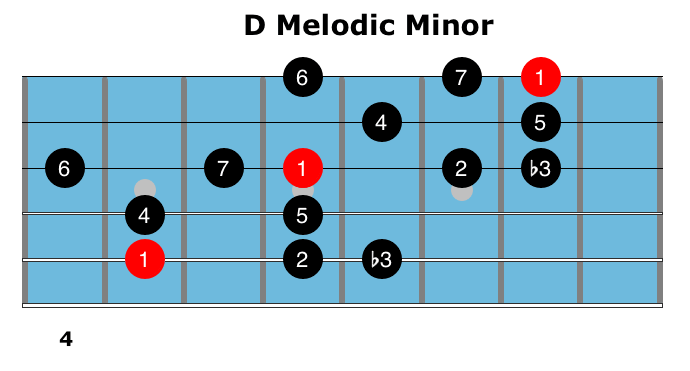
This scale is extremely used by musicians of different styles, especially jazz guitarists. It’s time to drop this addiction of thinking only in “keys”. Very well, just as we said on the application of the harmonic minor scale, the melodic minor scale needs to be studied beyond the context of the key, after all only a few songs have the melodic minor tonality. Im(M7) – IIm7 – bIIImaj7(#5) – IV7 – V7 – VIm7(b5) – VIIm7(b5)Īn example of a song that has many chords in the melodic minor key is “Papel Machê” by João Bosco. More generally, the melodic minor key is formed by: The key generated by the A minor melodic scale is as follows: Here in Simplifying Theory however, whenever we talk about the melodic minor scale, we are talking about the classical melodic minor (which goes up and down in the same way). This scale is used by musicians who don’t like the flavor of the melodic minor on the way down and prefer to use it only on the way up. Please see below: A classic melodic minor scale That is, it has a shape on the way up that is different from the shape on the way down. The real scale is a scale that goes up like the melodic minor scale and goes down like the natural minor scale. Many prefer to call the classical scale the “Bachian Scale”.

The name “classical” comes from the origin of its founder (Sebastian Bach), a great Baroque composer.

The classical melody is the one we have already shown. The flavor of the melodic minor scale differs somewhat from the flavor of the harmonic minor scale and is a little more difficult to analyze, after all it presents two alterations in relation to natural minor scale (6th and 7th degrees), while the harmonic minor scale shows only one alteration (7th degree).īefore we continue, it is worth mentioning that there are two melodic scales: the real melodic and the classical melodic. Try playing this scale repeatedly to feel the melody. Notice how the only difference is in the sixth degree (in this case, the F note).Ĭheck below the shape of the A minor melodic scale (degree 6 and 7 are highlighted): A Minor Melodic Scale

This would make the sound of the harmonic scale more melodic, giving rise to the so-called melodic minor scale. In order to reduce this distance, an intermediate note was added to bring the sixth degree closer to the seventh. We have already studied the harmonic minor scale and we saw that it has a “long” distance between degrees 6 and 7 (3 semitones).


 0 kommentar(er)
0 kommentar(er)
